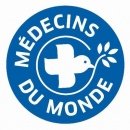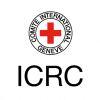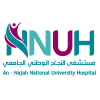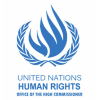Role of Community Centers in Contributing to the Promotion o...
Terms of Reference
Consultancy
Role of Community Centers in Contributing to the Promotion of Mental Health in the Palestinian Community in relation to community-based approaches
Background and Rationale
The Palestinian community faces significant mental health challenges due to ongoing political tensions, violence, and socio-economic stressors. Recognizing the importance of community-based approaches to mental health promotion, MdM CH is committed to empowering local Community-Based Organizations (CBOs) to foster resilience and mental well-being.
Community centers, as hubs of social support and interaction, play a crucial role in addressing mental health through their structure, organizational practices, and social mechanisms. Their role has an impact on mental health promotion beyond mere activities targeted at mental health promotion, by impacting on larger determinants of health and mental health. community-based approaches are particularly effective in addressing mental health needs, as they integrate local knowledge, promote social cohesion and trust, and adapt to the social, cultural, political contexts of the populations they serve. These approaches require and involve collaboration among various stakeholders, community members, service providers, decision makers, and external supporters, to create and enhance holistic and integrated support network.
To strengthen their impact, MdM CH seeks to explore how these centers contribute to mental health promotion and to identify strategies for integrating participatory approaches in project design and implementation.
This study will provide actionable insights to strengthen MdM CH’s partnerships with local CBOs and align future projects with community needs and priorities.
About Doctors of the World Switzerland
An international and independent medical NGO founded in 1980, that provides humanitarian relief and development aid to those most in need. The organization observes the principles of medical ethics and humanitarian aid and is currently active in 77 countries worldwide.
Doctors of the World Switzerland, created in 1993, has been working in the occupied Palestinian territory since 1994 and is in close cooperation with the two other Doctors of the World chapters currently operating in the region.
Our work focuses on providing quality mental health care to the most vulnerable population in East Jerusalem, West Bank and Gaza, through humanitarian emergency relief and sustainable long-term interventions. We implement an integrated approach through direct Mental Health and Psychosocial Support (MHPSS) field response, capacity building of local stakeholders and target groups, as well as awareness raising and advocacy campaigns.
Objectives of Study
Primary Objective
To explore how community centers contribute to promoting mental health in the Palestinian community by examining their structure, organizational practices, and working culture within the framework of community-based approaches.
Specific Objectives
To identify the factors contributing to mental health promotion within community centers, including social mechanisms such as social cohesion, empowerment, and peer support amongst many other related factors (such as self-esteem, expression of faith or belonging to a group, collective experiential learning, etc...)
To assess the strengths and challenges of adopting participatory approaches in project design and implementation.
To inform MdM CH’s shift towards integrated mental health promotion and primary prevention adopting community-based and participatory methodologies.
To provide actionable recommendations for strengthening existing community-based mental health models
Scope of Work
Geographic Scope
The research will focus on the following CBOs:
Sharek Community Center (Hebron)
Al Bustan Association Silwan (Jerusalem)
Thematic Scope
The research will explore:
Structural and organizational practices in the community center
The role of social mechanisms in mental health promotion (eg. Social cohesion, empowerment)
The application and impact of participatory approaches in the design of future projects and implementation
The application of participatory approaches within the CBOs’ strategies and activities and its impact on mental health promotion
Challenges and opportunities for strengthening community-based mental health initiatives in the specific context of community centers in palestine
Target Participants
CBO staff and leadership
Different groups of community members who benefit from center’s services (children, youth, men, women, caregivers, elderly, other formed groups within the community) Local stakeholders, including service providers and decision makers
MdM CH staff involved in partnership with CBO
Methodology
The research will employ a qualitative and participatory approach to foster in-depth understanding, while ensuring inclusivity and relevance by emphasizing the lived experiences of the stakeholders while actively involving them in the research process.
Literature review
Develop a brief thematic literature review to provide theoretical foundation and context.
Co-design phase
Participatory workshops involved with CBOs to co-develop research questions and data collection tools.
Data Collection
Focus Group Discussions (FGD): with community members of CBO to explore experiences and perceptions
Key Informant Interviews (KIIs): with CBO leadership, MdM staff, and local stakeholders
Immersive Observation: to conduct observation over extended period in different areas of the center to gain first-hand insights and comprehensive understanding of the implicit and explicit ways the center promotes mental health by observing daily activities, interactions, use of space...etc.
Participatory Mapping: to visualize resources and networks contributing to mental health
Or other means depending on needs and specific capacity of the researcher
Collaborative Data Analysis
Validation and participatory workshops to ensure findings reflect the participants’ perspectives and lived experiences.
Action Planning
Co-develop recommendations and feasible strategies to address issues and opportunities identified that are aligned with the needs and priorities of the community.
Expected Deliverables
Inception Report
After the co-design phase, detailing the methodology, work plan, and data collection tools and activities.
First Report
After the data collection and analysis phase.
Final Report
Comprehensive report including findings, recommendations, and actionable insights.
Presentation
Workshop or presentation on key findings and recommendations.
The research will be conducted over the period of 20 weeks with the following milestones:
Phase
Activities
Expected Duration
Inception Report
Literature review, tools development, stakeholder engagement
4 weeks
Data Collection
FGDs, KIIs, Observation, Mapping
8 weeks
Data Analysis & First Report
Thematic and co-analysis, validation workshops
4 weeks
Final Report & Dissemination
Final report preparation, presentation to stakeholders
4 weeks
Advanced degree in social science or related field anthropology, medical anthropology, community health, community psychology
Solid experience in qualitative research methodology
In dept knowledge of the Palestinian context
Experience in activities related to mental health and/or to health system
Fluent in Arabic and English
Capacity to adapt to changes to communicate efficiently
Demonstrated analytical expertise
Experience in writing scientific articles
Candidates are requested to provide:
An updated CV
A comprehensive technical proposition, highlighting the understanding: of the research topic, of the MDM’s specific needs and objectives and the proficiency in social science methods
A proposed timeframe and budget
References of previous research work related to the area of research and/or the methodology
Interested candidate should provide a complete file including the above-mentioned elements to the following e-mail address [email protected] titled: “MdM-Study-West-Bank" before 08/02/2025





















